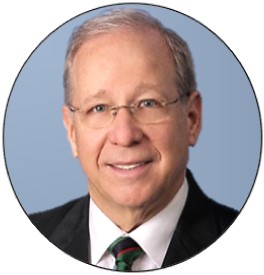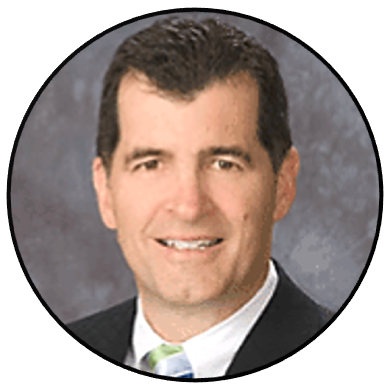Did Russia Ruin Online Marketing For Advisors? Hot

The bad news for advisors about two independent research reports about social media tactics used by Russia to influence American politics is that online marketing has been dealt a huge setback, but the good news is content marketing works.
The two independent research reports detail the sinister propaganda war waged against Americans on Facebook, Instagram, Twitter, YouTube, Google and other social platforms by Russia’s Internet Research Agency (IRA), fittingly named much like any other online marketing company, is actually an army of information warfare veterans who were trained for years and armed with the tactics to increase schisms dividing Americans using organic content marketing techniques. Russia diabolically turned America’s greatest strength — freedom of speech — against us.
| Advisor Communications Versus Russia’s Propaganda Campaign |
|
Why did the Russians set up online stores selling merchandise? If you bought a mug or T-shirt because you so fervently hated Hilary or supported Trump, the Russians knew you were a passionate supporter — “hot” leads in marketing jargon. This is just one of the online marketing tactics adopted by the Russians. Easily identifiable in 20-20 hindsight, according to the two independent reports released last week that were commissioned by the Senate Intelligence Committee, Russians waged a comprehensive long-term strategic propaganda attack against Americans and the government as well as the internet giants were oblivious. Propaganda warfare is not new but it suddenly grew into an asymmetrical weapon, with the rise of the Internet, allowing a weaker opponent to cause attack the much stronger U.S. at a fraction of the cost of waging a traditional military or economic attack. According to the report New Knowledge, an American firm commissioned by the Senate, the big U.S. social networks weren’t just easy targets but were negligent, perhaps criminally. You don’t have to be an internet marketing expert to understand the tactics. Nazi propaganda techniques and mass media led this son of Holocaust survivors to learn about propaganda and become a reporter. Advisors4Advisors is an outgrowth of my interest in using information to influence a community based on common values. Social media methods so effectively deployed by Russia can be used by financial advisors to enlighten their communities, employing the same tactics for good. If you're an A4A member, the 101-page report by New Knowledge is summarized in this nine-page PDF highlighted with key snippets for advisors, along with the one-page executive summary of the other report, a 47-page study by an independent group of academics from Oxford University. |
| DOWNLOAD |
|
The private companies on the American team, based on a review of their websites, are internet marketing consulting companies. Canfield Research's website is humble, while New Knowledge is slicker, more professional and loaded with content, research, and engagement tools. Complicating matters, since the report was published, New Knowledge suddenly has become embroiled in an ethical controversy, threatening the credibility of its research. New Knowledge has worked for political groups and its chairman, Jonathon Morgan, last week told The Washington Post he used disinformation tactics to influence the Alabama Senate election in support of Democrat Doug Jones and against the scandal-ridden campaign of Republican Roy Moore. Morgan said it was an experiment in the use of disinformation. As as result, Facebook removed his account, according to The New York Times. New Knowledge's report was highly critical of Facebook, but Morgan's company reported lies by Alphabet, Twitter and "Big Tech" by using their own words from Congressional testimony and public statements to document their deceit of Congress as well as their users. New Knowledge is a gun for hire with expertise in search and social marketing techniques, dark arts. Should we be shocked that the chairman of the consulting company commissioned by the Senate to investigate miscreants was involved in shady political disinformation work? No. The best research would be from political marketing on the edge of deceit and evil. In addition, the Alabama election "experiment" was targeted to undermine an alleged child molester. I’m not okay with it but this set of facts does not disqualify -- or even harm -- the credibility of the lead author of the New Knowledge report, Renee DiResta. She has testified before Congress, and she and team at New Knowledge, and Canfield, reported top notch facts about the attack based on data given to the Senate by by Big Tech. The recommendation to create a partnership among government, academic, and private companies should be heeded. The government agency, private company and acadamic partnership is a good idea. DiResta is well positioned to keep the momentum going and I don't know her but wish her luck. The British and American teams make clear that the attack by the Russians is ongoing. |
Both reports come to the same conclusions: Starting in 2012, Russia’s Internet Research Agency (IRA) waged an increasingly effective information war against the U.S.to sow dissent and distrust using fake social media accounts. Alphabet, Facebook, and Twitter were all negligent and lied to cover up the problems, which demonstrates a consciousness of guilt that arguably should be prosecuted criminally.
Practical implications of the release of the two reports, commissioned by the U.S. Senate Intelligence Committee, will be reverberate for years and change use of social platforms by Americans. For example, regulation of social media, once unthinkable, is now possible. The New Knowledge report suggests a partnership among the social media giants, academia and government — a thinly veiled reference to the need for regulation and government oversight, an issue fraught with questions about impinging on the First Amendment’s right to freedom of the press. More urgently, escalation of state-sponsored cyber-attacks suddenly poses real-world geopolitical risk across the globe.
For advisors, the stakes addressed below are not literally life and death, but your professional success is no trivial matter to you. Some thoughts about responding to the harsh new realities of social media for advisors:
Forget Facebook. I’ve never trusted Facebook’s privacy controls, so I never shared much on Facebook, even though I love social networking. Although what others shares about themselves is fascinating, I’m uncomfortable sharing too many personal moments in a public forum. With more than 200 million Americans, it’s a huge community and advisors can find valuable veins to mine. But it’s not for me. It’s everything I didn’t like about high school. People who work for me know about Facebook, but I’ve personally spent perhaps 1% of my time on Facebook. More valuable veins to mine before Facebook include LinkedIn, Twitter, keyword research, website optimization, and, most important of all, email newsletters. For professionals, Facebook is just not a priority.
LinkedIn Works, But. I’m leery of any club that would make me a member. With that caveat, LinkedIn is my top choice for financial professional social marketing. I’ve built a large network on LinkedIn.
LIONs Are Prey. LinkedIn Open Networkers, LIONs, are an example of how fake stuff spreads on the Web. LIONs accept connections from anyone. I’ve seen a CPA — a business accountant — with 28,000 contacts! Personally, I never accepted connections unless from anyone with a mysterious profile and history. When the fakes first started years ago, I was puzzled by it. But they were crude. It takes time to look at each connection, but I have been doing it for many years to keep fake accounts to a minimum. If bots are controlling millions of accounts, the stream of updates from your network includes these bots and makes it easier for you to fall prey to the miscreants. Cleaning out the fakes can be tough but you should it.
Polarity Is High. Enemies of the U.S are actively targeting both sides of the most divisive issues separating Americans. Maybe we need a new social media forecast showing when state sponsored campaigns are running high. Maybe we need a daily weather forecast to know how much polarization is being inflicted on the U.S. Daily — kind of like an economic index, but based on the strength of foreign information warfare campaigns.
Knowledge Is King. Content isn’t king. Knowledge is! “Man bites dog” news coverage dominates journalism but people want more than that now. News services that share your values are more important and worth paying for.
Journalism 3.0. Local newspapers are mourned in the media, but a new version of journalism is emerging: membership in online communities supported by others sharing your values are the new news organizations. This model for replacing newspapers and traditional media outlets is likely to flourish in the U.S.
Channel Client News. With chaotic conditions in virtual-information and more than usual chaos in the real world, fiduciaries bear a responsibility to be a source of authoritative financial news to clients, and their broader community.
Validation. Fake profiles created to publish propaganda makes validating that you’re a real financial professional more important. To give credibility to your social profile used by Google and other search engine rankings, make sure your profiles on Google My Business, Yahoo, Bing are filled in and displaying accurate information about your location, years of experience and other basics. Also get listings on sites including CFP Board, NAPFA, licensing bodies as well as professional organizations and specialized sites like realfinancialprofessionals.com, and lowexpenseinvesting.
Email Still No. 1 In Advisor Marketing. Email remains the best marketing method for advisors. You control who sees your content. You can easily require two-factor authentication by mobile phone. So you keep out fakes and are dealing with a genuinely interested group. Plus, the analytics are useful to you and your clients. To be clear, advisors who value their news feed don’t want recipients who are not engaged, and you can easily clean your list of unknowns — competitors perhaps— who have signed up for your news feed because they are too shrewd..
Is Advisor Marketing Ruined? No, Russia has not ruined online marketing for financial professionals, but it has dealt a setback to the vast majority of advisors who know not of what they do. Advisors who want to build community around a common system of values and beliefs should check out my online marketing company at AdvisorProducts.com.


















